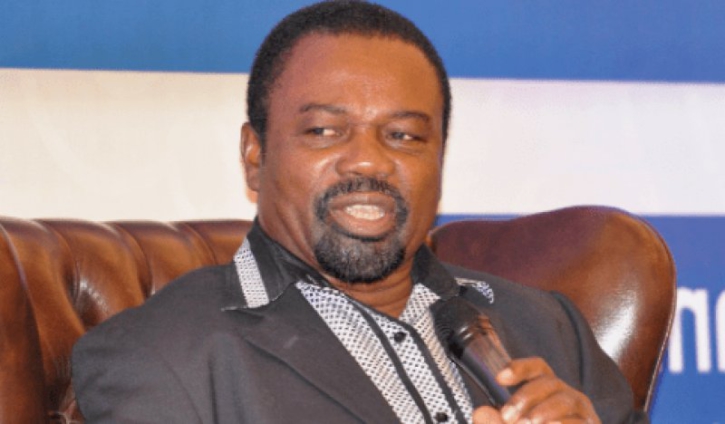Dean of Ghana Armed Forces Command and Staff College (GAFSC), Dr Vladimir Antwi-Danso has advocated for a cattle owners/herders stabilised ranching system to address their perennial conflicts.
He said as part of measures to end the age-old problem, herders must be encouraged to adopt sedentary livestock production; that is rearing the animals in pens or kraals.
Dr Antwi-Danso said the age-old phenomenon was gradually strangulating the West African sub-region; and that it was more prominent even in Nigeria than in any other place.
He cited that in recent times, clashes between herders and crop farmers in Nigeria led to the unfortunate deaths of many herders.
“So, it is a West African problem, which ECOWAS is trying to solve. But on our own, what should we be doing?” he quizzed.
He noted that in Ghana, over the years, farmers-herders’ conflicts had been recorded in the Agogo area in the Ashanti Region, the Afram Plains in the Eastern Region and some parts of the north.
He said the late President Kwame Nkrumah signed an agreement with President Yaméogo of the then Upper Volta (now Burkina Faso) on the movement of cattle between the two nations which created special corridors for the cattle as they entered Ghana.
He added that “destruction of crops by the cattle of the herdsmen was there but not to the level that we have now.”
“In those days, we didn’t have the problem in Ghana as such, the herders head all the way from Burkina Faso from November onwards and then they enter Ghana, come to Afram Plains, which was not very much populated, explore large areas without people then graze and somewhere in March-April, they all return to Burkina Faso,” he said.
He further stated that veterinary officers were situated at strategic points on the corridors where the animals are vaccinated and stamped for easy identification.
Dr Antwi-Danso said the animals could come to Ghana and graze and 60 per cent of the cattle that entered the country were sold back to Ghana.
He said the beef fed the beef factory and the skin for the tanning industry.
He said during Nkrumah’s regime, cattle owners in Ghana were made to have kraals.
He said when the cattle were confined to kraals with grazing areas, it would go a long way to eliminate the problem of the animals destroying crops of farmers.
The Dean said the herders would also provide fodders and hay for the animals within the confinement, adding that the more the cattle were confined, the less there would be the likelihood of any farmers-herders’ conflict.
He said rearing cattle in kraals was more hygienic and more scientific; saying “anybody who has cattle must pen them”.
Concerning free range cattle rearing, Dr Antwi-Danso said: “It is like we are still doing what people did in the 17th century and 18th century; release the cattle go graze and that kind of thing.”
“Today, you need to protect them from human beings, you need to protect human beings from them. What we need to do is to actually go more scientific in our cattle rearing.”
He said in the past, Fulanis were mostly herders; however, the situation had changed and that currently people from the various ethnic groups in the country were practicing herding.
He said some Ghanaian businessmen were also into cattle rearing and therefore, the herders were only taking care of the animals for them.
He pointed out that some chiefs were taking money from the herders and opening up their areas to them for grazing, which could lead to conflicts between the local crop farmers and the herders.
He said in advanced countries, cattle were being reared on the ranching system, which Ghana could adopt.
He said the farmers-herders’ conflict had serious security, social and economic implications for the country; stating that it was due to its serious security implications that led to the setting up of the Operation Cowleg by the Ghana Armed Forces, as part efforts to contain the situation.
Dr Antwi-Danso also called for education and sensitization of herders through the media on the need for them to peacefully co-exist with crop-farmers in the various host communities.
Latest Stories
-
SHS heads demand payment of outstanding funds before reopening of schools
22 minutes -
We thank God for the 2024 general elections – Akufo-Addo
36 minutes -
Coconut Grove Beach Resort marks 30 years of excellence with memorable 9 lessons & carols service
48 minutes -
WAFU B U-17 Girls’ Cup: Black Maidens beat Nigeria on penalties to win inaugral tournament
2 hours -
Real Madrid beat Sevilla to keep pressure on leaders Atletico
3 hours -
Liverpool put six past Spurs to go four points clear
3 hours -
Manchester United lose 3-0 at home to Bournemouth yet again
3 hours -
CHAN 2024Q: ‘It’s still an open game’ – Didi on Ghana’s draw with Nigeria
3 hours -
CHAN 2024Q: Ghana’s Black Galaxies held by Nigeria in first-leg tie
4 hours -
Dr Nduom hopeful defunct GN bank will be restored under Mahama administration
4 hours -
Bridget Bonnie celebrates NDC Victory, champions hope for women and youth
4 hours -
Shamima Muslim urges youth to lead Ghana’s renewal at 18Plus4NDC anniversary
5 hours -
Akufo-Addo condemns post-election violence, blames NDC
6 hours -
DAMC, Free Food Company, to distribute 10,000 packs of food to street kids
7 hours -
Kwame Boafo Akuffo: Court ruling on re-collation flawed
7 hours

